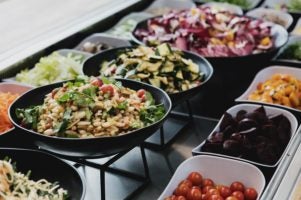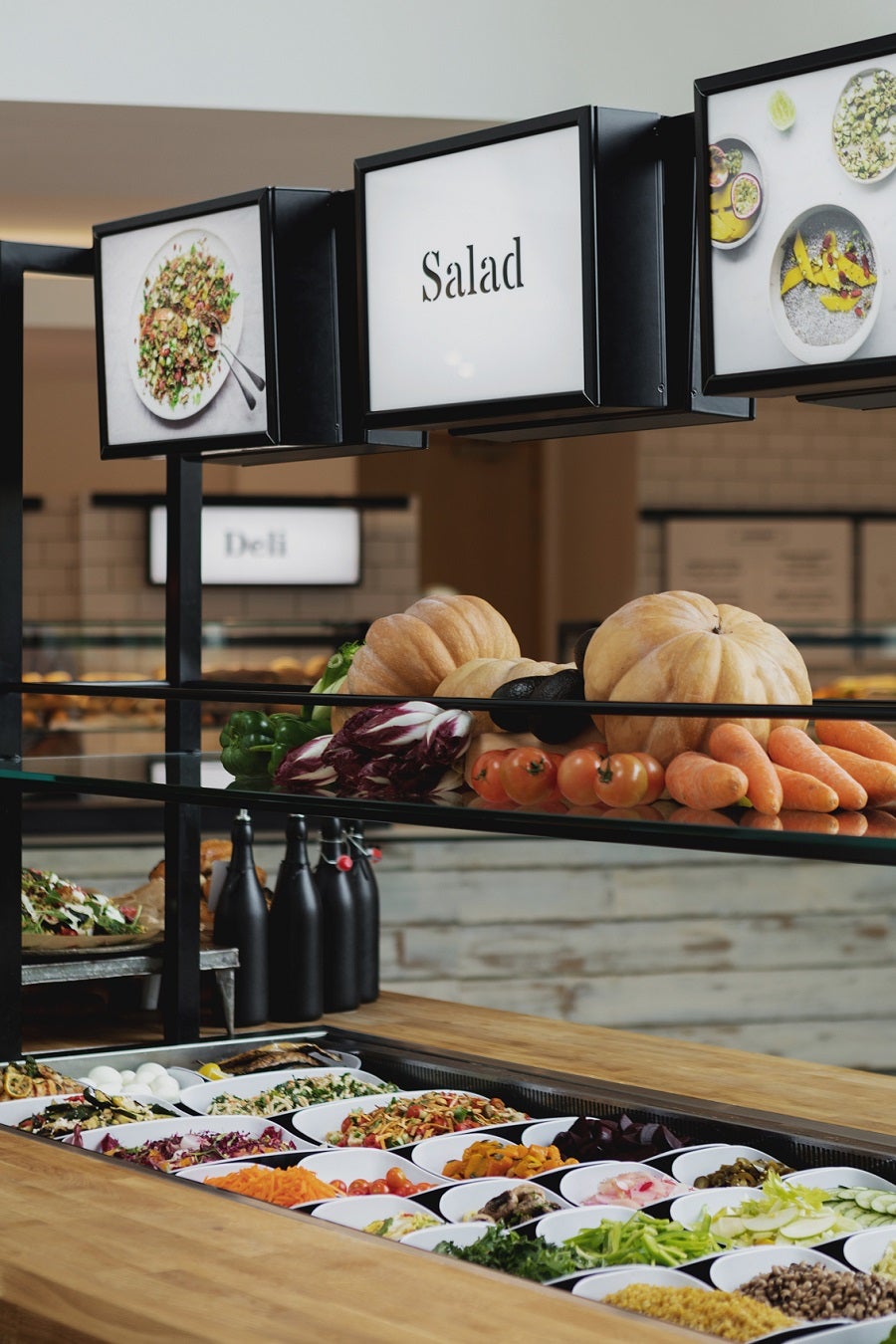For a long time, unless you worked in a big ad agency or in entertainment, an office lunch usually consisted of competing for the kitchen microwave or for the lucky few grabbing a sandwich from the staff canteen.
But tech giants such as Google and Facebook changed all that. With their unlimited snacks, tap beers and third-wave coffee, they raised the bar and shook up the future of food in the workplace forever. Traditional organisations are now beginning to catch on.
Using food to attract talent and foster company culture
“Regardless of the sector they work in, top talent now seek the environment and benefits offered by leading tech companies,” says Collin Burry, design director at architecture firm Gensler, which has designed workspaces for Etsy, Adobe and Facebook. “For many, a major part of the draw is feeling coddled and cared for, and food is a big part of that.”
Millennials especially expect more from their workplace, and businesses are having to consider the needs and expectations of an agile, multi-generational and frequently international workforce.

Modern Recipe
Current dining trends include street food trucks, in-house cookery schools, organic and seasonal ingredients, global cuisine, fully stocked fridges, barista-made coffee and free happy hours. The better the offering, the stronger the company culture and staff retention.
At the All Work & Social XYZ co-work building in Spinningfields, Manchester, members can sip on cocktails and feast on wood-fired pizza while listening to in-house DJs. The catering team were trained in Naples to ensure the product is top notch and authentic.
“The pizza dining experience has always been perceived as a social practice,” says Anthony Powell, All Work & Social’s managing director. “Something that is extremely important to our approach in creating work and social spaces.”
Healthy food in the workplace and team members’ productivity
Traditional organisations are starting to provide more sophisticated, healthy dining options to rival the big tech companies and co-working spaces. According to the Allegra Health and Wellness Summit, 27 per cent of employees say access to healthy food and drink is the number-one way their workplace could support them.
Famously good canteens can be found at Kellogg’s, Verizon, Morgan Stanley, Esprit, UBS, Audible and Neal’s Yard Remedies. Some are even open to the public.
Sodexo, which provides food in the workplace for the likes of Microsoft, Unilever and Nestlé, partnered with London-based branding agency Without, to create Modern Recipe, a new-look canteen that offers a range of international dishes, including plant-based options, smoothie bars and Ottolenghi-style salads.

Modern Recipe
The rebrand, which adapted to the changing tastes and demands of its clients, was rolled out across several company sites, including global pharmaceutical company AstraZeneca and UK multinational drinks company Diageo.
“Instead of a classic corporate canteen, with inflexible hours, heavy food and ‘Mexican week’, we imagined a flexible space suitable for eating and meeting, where a range of healthy, well-sourced food was available all day and felt as desirable as the best modern high street brands,” says Roly Grant, Without’s co-founder and creative director. “Ultimately, if their office has a buzzing, multi-use space full of healthy, happy motivated people, that’s a win for the corporate client.”
The investment has paid off. Since Modern Recipe was introduced at AstraZeneca’s Cambridge site, workplace dining increased by 45 per cent and revenue went up 60 per cent. At Diageo, sales turnover rose by 15 per cent.
Employee engagement and an inspiring work environment
Canteen design is just as important as the quality of food in the workplace. Breakout areas, hotel lobby-style seating and cosy nooks allow for privacy as well as socialising.
“Workspaces have become more influenced by a sense of comfort,” says Burry. “Canteens are beginning to be used as co-working spaces all day round and employees can invite guests inside rather than travel to meet them at an outside café. A well-considered canteen is becoming an integral part of the broader working environment.”
Having a welcoming place to hang out also combats loneliness, and allows for creative thinking and cross-pollination of ideas. “MAG’s success is directly linked to the fertile minds of our employees,” says David Amor, chief business development officer MAG Interactive, which gives staff a free daily breakfast, as well as lunch on Fridays.
“But creative ideas rarely come when staring at a computer screen. A conversation with your peers over breakfast can kick the day off. It’s a meeting that doesn’t feel like a meeting.”
